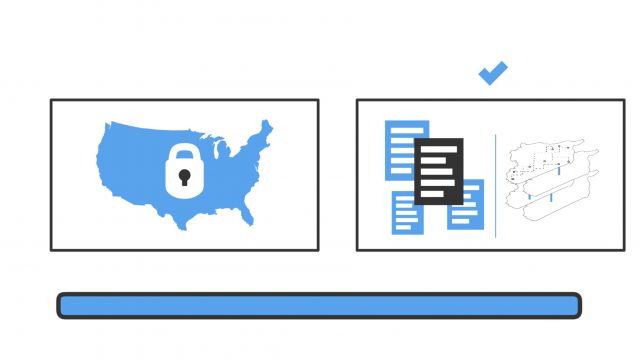OK, so a lot of people say Syrian refugees can't be vetted thoroughly enough — that we don't have enough resources inside Syria to gather needed information.
But, the refugee vetting process is actually really rigorous and has many layers. Data from within Syria isn't all that's used to vet them.
In fact, aside from Afghanistan and Iraq, where the U.S. has had extensive on-the-ground involvement, most countries refugees come from don't have extensive U.S.-based intelligence resources.
SEE MORE: The US Hasn't Taken In Many Syrian Refugees — Here Are The Numbers
It starts out like this: After fleeing their country, a person is first interviewed by the United Nations' refugee agency, the UNHCR.
This interview determines whether the person fulfills the criteria for refugee status. That means they need to be under threat of persecution from their home country and be living outside of it.
If the person can indeed be called a refugee, then that designation is reviewed.
If it sticks, the refugee is referred to a resettlement nation. All of the information collected by the UNHCR is passed on to the host nation. Beyond refugee status, that information includes biometric data, biographical data and more.
In the case of the United States, a Refugee Support Center working with the U.S. State Department jumps in, scrutinizes the data and interviews the refugee to gather more information.
The refugee then goes through more interviews with the Department of Homeland Security. The officers conducting the interview have been specially trained to not only ask the refugees about their country, but also the specific regions they came from.
This comes with more biometric checks and security checks from the National Counterterrorism Center, FBI, Department of Homeland Security, Department of State and Department of Defense. Some of these checks are made using classified information.
SEE MORE: Almost Half Of The Refugees Admitted Onto US Soil This Year Are Muslim
If the refugee has any documentation — and most do — it is checked for authenticity by officers trained in fraud detection. In certain cases, social media accounts are checked, too.
After the security checks, the refugee applicant still needs to pass a medical check and complete cultural orientation classes before moving on.
If a refugee can make it through all of this — the hours upon hours of interviews, the multiple security checks, classified and unclassified, made by various intelligence and security agencies — then they can finally be approved to enter the U.S.


